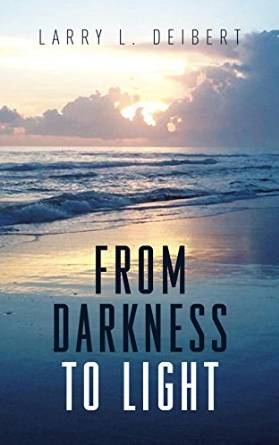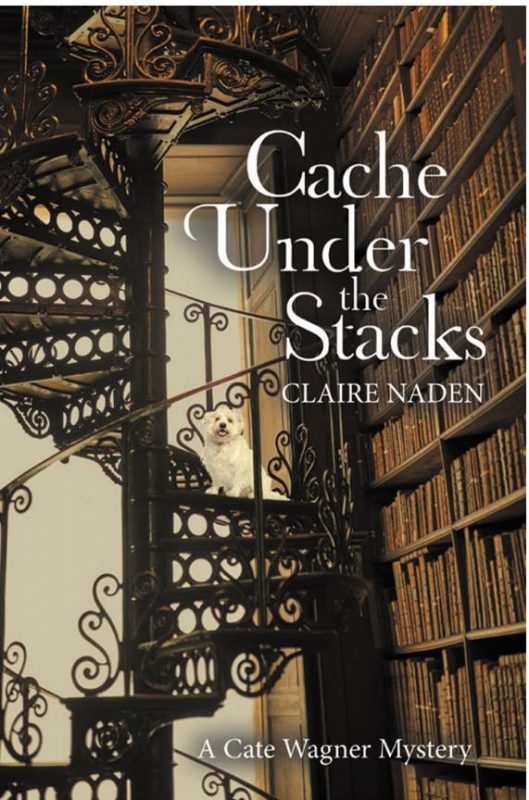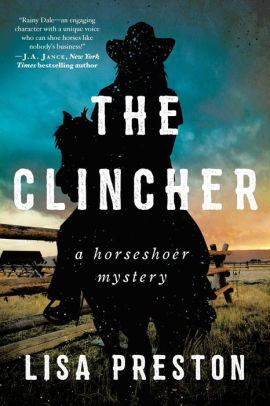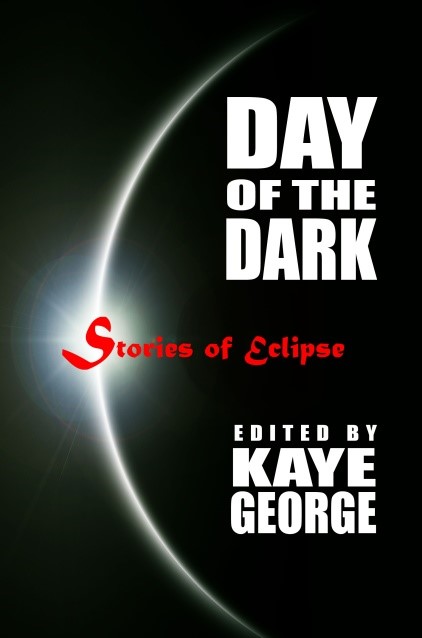Writing the Federal Agent
January 24, 2023 by marianne h donley in category Ages 2 Perfection Online Class, Apples & Oranges by Marianne H. Donley, Events, Online Classes tagged as A2P Online Class, FBI, Federal Agents, jennifer D. Bokal, online writing class, research, Research for Writers, Writing Federal Agents
Writing the Federal Agent
Presented by: John Bokal with Jennifer Bokal
Date: February 1 – 28, 2023 (one month)
Registration Closes: February 16, 2023
Pricing: A2P Member fee: $5
Non-A2P Member fee: $10
About the Workshop:
There’s no denying it—federal law enforcement agents and agencies have sparked the imagination of readers and writers for generations. But how can a writer really understand what it’s like to be a part of the law enforcement community?
Join retired FBI Special Agent, John P. Bokal, Jr. to discuss the various agencies tasked with investigating federal crimes and what it’s like to be a federal agent. His wife, multi-published and best-selling author Jennifer D. Bokal, will then provide exercises to help participants develop their own realistic federal agent characters.
About the Presenters:
Jennifer D. Bokal is the author of more than 20 novels and novellas. Her books include the best-selling Ancient World Historical Romance, The Gladiator’s Mistress, and novellas from the popular Contemporary Western series, Bear Creek Rodeo. But Jen spends most of her time writing for Harlequin’s Romantic Suspense line.
Her husband of more than 25 years, John P. Bokal, Jr., is retired FBI Special Agent. During his 30 years with the FBI, John worked a variety of cases including kidnappings, missing persons, and bank fraud. Jen and John live in upstate NY. They have three grown daughters and have filled their “empty nest” with several fur babies.
The Birth of the Christmas Card
December 3, 2022 by Janet Elizabeth Lynn and Will Zeilinger in category Partners in Crime by Janet Elizabeth Lynn & Will Zeilinger tagged as Christmas cards, E.J. Williams, Janet Elizabeth Lynn, Research for Writers, The history of Christmas cards, Will Zeilinger
The First Christmas Card
John Callcott Horsley designed the world’s first commercially produced Christmas card for Sir Henry Cole in 1843.
Cole was part of the elite social circle in Victorian England. During the holiday season of 1843, having too many friends caused Cole much anxiety.
The old custom in England of sending Christmas and New Year’s letters boomed with the British postal system introducing the “Penny Post.” A letter or card could then be sent anywhere in the country for the cost of a penny stamp.
Now, everybody was sending letters, but Sir Henry Cole was a busy man. He watched the stacks of unanswered correspondence and fretted over what to do. In Victorian England, it was considered impolite not to answer mail, and being the 1840s equivalent of an A-Lister, Cole had to figure out a way to respond to all of these people.
Cole asked his artist friend, John Callcott. Horsley, to design an idea he had sketched out. Cole had a thousand copies on stiff cardboard made by a London printer. On each postcard he had printed “TO:_____” so he could “personalize” the generic greeting “A Merry Christmas and A Happy New Year to You.”
Thus was born the first Christmas card.


The Modern Christmas Card
In the early 1900s, a man named Joyce Hall started a revolution that resulted in creating the modern-day Christmas card.
In 1905, he and his brothers spent $540 to buy picture postcards to sell to store owners and retailers in Norfolk, Nebraska. A few years later, they opened their own little store in Kansas City, Missouri, selling the postcards and other greeting cards, but the store sadly burned down just a little while later. After that, The Hall Brothers bought an engraving business and printed their own cards.
Their customers wanted to write more than what would fit on a postcard. This resulted in a card that was 4 x 6 inches folded once, and inserted into an envelope. By 1928, the cards were being produced under the brand we all know today as Hallmark.
Christmas cards in the twentieth century reflected the times and artistic styles of each decade.
With the advent of computers and digital photography, families could now shoot, design, and print their own customized cards right at home.





The Most Popular Christmas Card of All Time
Debuting in 1977, one particular greeting card quickly took hold as the bestselling Christmas card design of all time.
Hallmark artist Ruth Morehead designed the angelic Three Little Angels artwork that depicts a trio of adorable cherubs. Unlike seasonal cards that come and go with each passing year, ‘Three Little Angels’ was so popular that it was sent over 36 million times in its first two decades of production. According to Hallmark’s director of creative writing, Kristin Riott, “Cuteness and God together are unbeatable.”

Christmas Cards Today
Technology advancements in recent decades are making Christmas cards a little less popular. Social media platforms make it easier to stay connected with friends and family all over the world, and face-to-face video conferencing helps form meaningful connections, especially around the holidays.
Along with Mother’s Day, Christmas cards are still the most popular season for card-buying, card making, & sending, with over 1.5 billion individual & boxed cards purchased every year.


Janet and Will’s Skylar Drake Mystery Series
Vintage 1960 TV Theme Music
September 3, 2021 by Janet Elizabeth Lynn and Will Zeilinger in category Partners in Crime by Janet Elizabeth Lynn & Will Zeilinger, Starting a Novel Series with a Partner by E. J. Williams tagged as 1960s Research, E.J. Williams, Janet Elizabeth Lynn, Research for Writers, Will Zeilinger, writing partners
The 1960s began a new era of television programs. Broadcasting transitioned from black/white to color. Lighthearted sitcoms/comedies were the most-watched shows. But as the decade progressed people became socially conscious. Memorable theme songs/ lyrics defined the shows.
Here are just a few of those memorable theme songs in alphabetical order:

Hogan’s Hero’s
1965 to 1971
CBS
by Jerry Fielding

I Dream of Jeanie
1965-1970
CBS
by Hugo Montenegro

Mission Impossible
1966-1971
CBS
by Lalo Schifrin

My Three Sons
1960 to 1970
ABC
by Frank De Vo

The Addams Family
1964 to 1966
ABC
by Vic Mizzy

The Andy Griffith Show
1960 to 1968
CBS
by Earle Hagen

The Avengers
1966 to 1969
CBS
by Laurie Johnson

The Beverly Hillbillies
1962-1971
CBS
by Paul Henning

The Courtship of Eddies Father
1969 to 1972
ABC
by Harry Nilsson

The Twilight Zone
1959 to1964
CBS
by Bernard Herrmann
Some of Janet and Will’s Books
0 0 Read more
Music by E. J. Williams
February 3, 2021 by Janet Elizabeth Lynn and Will Zeilinger in category Partners in Crime by Janet Elizabeth Lynn & Will Zeilinger tagged as 1960s, Billboard top 10, E.J. Williams, music, Research for Writers
Music
The Top 10 1960s Billboard Hits
Enjoy the waltz down memory lane!

- 1960 A Summer Place Theme recorded by Percy Faith and orchestra

2. 1961 Tossin and Turnin by Bobby Lewis

3. 1962 Stranger on the Shore by Mr. Acker Bilk

4. 1963 Sugar Shack by Jimmy Gilmer and the Fireballs

5. 1964 I Want to Hold Your Hand by The Beatles (Ed Sullivan Show)

6. 1965 I Can’t Get No Satisfaction by The Rolling Stones

7. 1966 Ballad of the Green Berets by SSgt. Barry Sadler

8. 1967 To Sir with Love by Lulu

9. 1968 Hey Jude by The Beatles

10. 1969 Sugar, Sugar by The Archies (You’ll get a kick out of the animation.)
Happy (St.) Valentine’s Day! by Carol L. Wright
February 13, 2020 by Bethlehem Writers Group in category From a Cabin in the Woods by Members of Bethlehem Writers Group tagged as Research for Writers, Researching Historical Fiction, writing
Tomorrow is Valentine’s Day—the day for lovers—and the least popular day of the year for single folks whose lack of a partner becomes acutely apparent.
For a mystery writer, the day offers all sorts of inspiration. Love or lost love is, after all, one of the prime motivators for murder-most-foul. What mystery writer hasn’t used it a time or two—at least as a red herring?
But even more interesting to this mystery writer is the origin of St. Valentine’s Day. While it is ostensibly the feast day for a Roman Catholic saint named Valentine who died on February 14th, the record is not so clear on exactly who, why, or even when a man named Valentine became the patron saint of love, young people, and happy marriages.

By blackfish – Own work, CC BY-SA 3.0,
Legend holds that St. Valentine died around 269 CE. This was well before the Edict of Milan legalized the Christian church in 313, so records from that time are spotty at best. The Christian church was still being persecuted by Rome and much of what we know of its early history comes from oral tradition rather than contemporaneous records. So, in mystery writers’ terms, we don’t really know for sure whodunnit!
According to history.com, there are at least two viable candidates for the honor of being the mortal who became St. Valentine. They lived around the same time—the reign of Emperor Claudius II of Rome (214-270 CE). One was a simple priest. The other was the Bishop of Terni, Narnia, and Amelia. Even the church isn’t 100% sure which it was.
Stories abound about the saint and are accepted as truth—or truth adjacent—for the purposes of celebrating the feast day.
The official St. Valentine, according to the Vatican (catholic.org), died in 269 CE. He was an Italian priest (or bishop?) who, according to legend, proved the power of Christ by restoring the sight of the blind daughter of a judge (or jailer?) who had imprisoned him. As a result, Valentine was awarded his freedom. But it wasn’t long before Valentine was again arrested. His crime? Converting people, marrying couples (starting to see the connection to love and happy marriages?), and assisting Christians being persecuted by Rome. His motive for marrying couples might have been less about romance and more about pragmatism. Apparently, once married, men were excused from going to war. That’s a pretty big incentive.
He went too far when he tried to convert Emperor Claudius II, who ordered Valentine to renounce his faith or be put to death. He chose the latter and the death sentence was carried out in 269 CE (or perhaps 270, or 273, or 280 . . .) He is believed to have been buried on the Via Flaminia north of Rome, perhaps leaving a note behind for the girl whose blindness he cured, signed “Your Valentine.” Hmmm. Sound familiar?
Both the bishop and the priest are said to have performed similar miracles, met similar fates, died at a similar time, and buried at a similar place. No wonder we’re confused. Some speculate that the priest and the bishop were, in fact, one and the same.
But wait. Wikipedia tells us that there is at least one more candidate—another martyr who died on the same day in Africa. Not much else is known about this Valentine, but since they all are recorded as dying on February 14, who’s to say which is the St. Valentine?
But if we can’t be certain of which Valentine it was, or what year he died, how can we know that he died on February 14th?
As with other Christian holidays, St. Valentine’s day might have been placed in mid-February to help ease pagans’ transition to Christianity, supplanting the Roman Festival of Lupercalia which, according to thoughtco, was celebrated on February 13-15, and was said to purify the City of Rome and usher in a time of health and fertility.
Another theory is that since birds mate in mid-February, the patron saint of lovers feast day was placed then. Tennyson said it best in “Locksley Hall”: In the spring, a young man’s fancy lightly turns to thoughts of love.
The truth about Valentine will never be settled. When, in 496 CE, Pope Gelasius I first included Valentine’s name among those of other saints, he admitted the list was of people whose acts (miracles? good works? martyrdom?) were “known only to God.” No new evidence has turned up since to settle the question.

By Dnalor 01 – Own work, CC BY-SA 3.0
In 1969, the Roman Catholic church, perhaps due to this ambiguity, ceased requiring celebration of Valentine’s feast day, but it still counts him among the saints.
Whoever he was in life, St. Valentine is known, not only as the patron saint of love, happy marriages, and young people, but also of engaged couples, beekeepers, epilepsy, fainting, greetings, travelers, and plague (yikes!). Only a few of these mesh with our current, secular view of Valentine’s Day, but with selective editing, florists, card companies, and chocolatiers have ample excuse to make the most of this bright spot in the winter calendar.
So, who will be your Valentine? Let’s hope they are not shrouded in as much mystery as St. Valentine!
0 0 Read more
Affiliate Links
A Slice of Orange is an affiliate with some of the booksellers listed on this website, including Barnes & Nobel, Books A Million, iBooks, Kobo, and Smashwords. This means A Slice of Orange may earn a small advertising fee from sales made through the links used on this website. There are reminders of these affiliate links on the pages for individual books.
Search A Slice of Orange
Find a Column
Archives
Featured Books
FROM DARKNESS TO LIGHT
Eight humans must send earthbound ghosts to their final reward.
More info →CACHE UNDER THE STACKS
Bungalow Books comes with more than Cate Wagner bargained for.
More info →THE WITCHES OF NEW MOON BEACH BOXED SET
A touch of witchcraft around every corner.
More info →DAY OF THE DARK
A recipe for disaster: take one total solar eclipse, add two dozen spine-chilling mysteries, and shake the reader until the world ends in Day of the Dark!
More info →Newsletter
Contributing Authors
Search A Slice of Orange
Find a Column
Archives
Authors in the Bookstore
- A. E. Decker
- A. J. Scudiere
- A.J. Sidransky
- Abby Collette
- Alanna Lucus
- Albert Marrin
- Alice Duncan
- Alina K. Field
- Alison Green Myers
- Andi Lawrencovna
- Andrew C Raiford
- Angela Pryce
- Aviva Vaughn
- Barbara Ankrum
- Bethlehem Writers Group, LLC
- Carol L. Wright
- Celeste Barclay
- Christina Alexandra
- Christopher D. Ochs
- Claire Davon
- Claire Naden
- Courtnee Turner Hoyle
- Courtney Annicchiarico
- D. Lieber
- Daniel V. Meier Jr.
- Debra Dixon
- Debra H. Goldstein
- Debra Holland
- Dee Ann Palmer
- Denise M. Colby
- Diane Benefiel
- Diane Sismour
- Dianna Sinovic
- DT Krippene
- E.B. Dawson
- Emilie Dallaire
- Emily Brightwell
- Emily PW Murphy
- Fae Rowen
- Faith L. Justice
- Frances Amati
- Geralyn Corcillo
- Glynnis Campbell
- Greg Jolley
- H. O. Charles
- Jaclyn Roché
- Jacqueline Diamond
- Janet Lynn and Will Zeilinger
- Jeff Baird
- Jenna Barwin
- Jenne Kern
- Jennifer D. Bokal
- Jennifer Lyon
- Jerome W. McFadden
- Jill Piscitello
- Jina Bacarr
- Jo A. Hiestand
- Jodi Bogert
- Jolina Petersheim
- Jonathan Maberry
- Joy Allyson
- Judy Duarte
- Justin Murphy
- Justine Davis
- Kat Martin
- Kidd Wadsworth
- Kitty Bucholtz
- Kristy Tate
- Larry Deibert
- Larry Hamilton
- Laura Drake
- Laurie Stevens
- Leslie Knowles
- Li-Ying Lundquist
- Linda Carroll-Bradd
- Linda Lappin
- Linda McLaughlin
- Linda O. Johnston
- Lisa Preston
- Lolo Paige
- Loran Holt
- Lyssa Kay Adams
- Madeline Ash
- Margarita Engle
- Marguerite Quantaine
- Marianne H. Donley
- Mary Castillo
- Maureen Klovers
- Megan Haskell
- Melanie Waterbury
- Melissa Chambers
- Melodie Winawer
- Meriam Wilhelm
- Mikel J. Wilson
- Mindy Neff
- Monica McCabe
- Nancy Brashear
- Neetu Malik
- Nikki Prince
- Once Upon Anthologies
- Paula Gail Benson
- Penny Reid
- Peter Barbour
- Priscilla Oliveras
- R. H. Kohno
- Rachel Hailey
- Ralph Hieb
- Ramcy Diek
- Ransom Stephens
- Rebecca Forster
- Renae Wrich
- Roxy Matthews
- Ryder Hunte Clancy
- Sally Paradysz
- Simone de Muñoz
- Sophie Barnes
- Susan Squires
- T. D. Fox
- Tara C. Allred
- Tara Lain
- Tari Lynn Jewett
- Terri Osburn
- Tracy Reed
- Vera Jane Cook
- Vicki Crum
- Writing Something Romantic
Affiliate Links
A Slice of Orange is an affiliate with some of the booksellers listed on this website, including Barnes & Nobel, Books A Million, iBooks, Kobo, and Smashwords. This means A Slice of Orange may earn a small advertising fee from sales made through the links used on this website. There are reminders of these affiliate links on the pages for individual books.























































